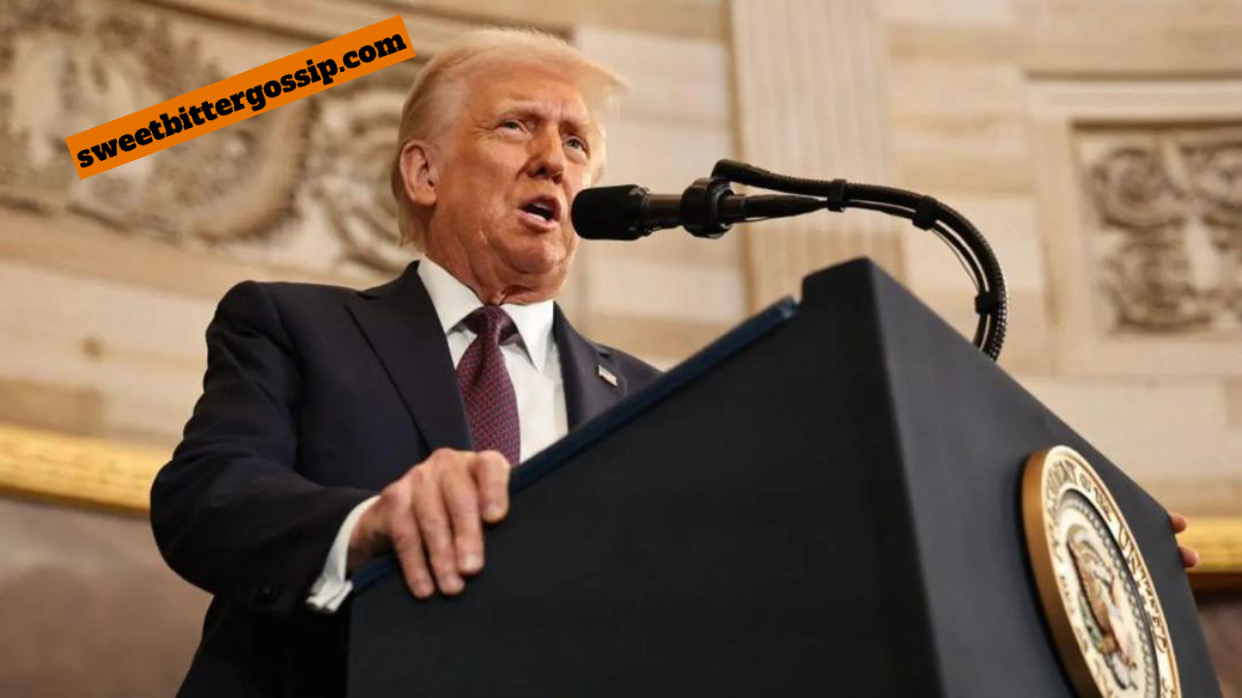In his first major act as the 47th president of the United States, Donald Trump signed an executive order to end birthright citizenship, which grants automatic citizenship to anyone born on U.S. soil. While Trump has long promised this policy change, implementing it faces numerous challenges.
The executive order aims to deny citizenship to children born in the U.S. to migrants either in the country illegally or on temporary visas. However, it does not apply retroactively. The key challenge lies in the fact that birthright citizenship is enshrined in the U.S. Constitution, specifically in the 14th Amendment. Changing this would require a two-thirds vote in both chambers of Congress and approval by three-quarters of the states.
Trump’s move is expected to face significant legal hurdles. Eighteen states, along with San Francisco and the District of Columbia, have already sued the federal government to challenge the order. Legal experts widely agree that the courts, rather than the president, will decide the fate of this policy.
What Is Birthright Citizenship?
The 14th Amendment, adopted in 1868, establishes the principle of birthright citizenship. Its first sentence reads:
“All persons born or naturalized in the United States, and subject to the jurisdiction thereof, are citizens of the United States and of the state wherein they reside.”
This provision was introduced after the Civil War to resolve the status of freed slaves. It overturned earlier Supreme Court rulings, such as the infamous 1857 Dred Scott v. Sandford decision, which stated that African Americans could never be U.S. citizens.
In 1898, the Supreme Court reinforced the principle in Wong Kim Ark v. United States. Wong Kim Ark, a U.S.-born son of Chinese immigrants, was denied re-entry to the U.S. after visiting China. The court ruled that his birthplace entitled him to citizenship, regardless of his parents’ immigration status. This precedent has not been reexamined since.
Why Target Birthright Citizenship?
Immigration hardliners argue that birthright citizenship incentivizes illegal immigration, claiming that undocumented pregnant women cross the border to give birth in the U.S., a practice critics call “birth tourism.” The term “anchor baby” is often used pejoratively to describe children born in such circumstances.
Supporters of the policy, however, emphasize its constitutional foundation and historical significance, particularly in extending citizenship rights regardless of race or lineage.
Can Trump Overturn It?
Most constitutional scholars believe Trump cannot end birthright citizenship through an executive order. Saikrishna Prakash, a constitutional law professor at the University of Virginia, explained, “This is not something he can decide on his own. It will ultimately be decided by the courts.”
While Trump may direct federal agencies to interpret citizenship laws more narrowly, this would likely trigger lawsuits from those denied citizenship. Such cases could lead to a lengthy legal battle, potentially ending at the Supreme Court.
A constitutional amendment could eliminate birthright citizenship, but it would require an arduous process: a two-thirds vote in both the House and Senate, followed by approval from three-quarters of the states.
How Many People Would Be Affected?
According to Pew Research, about 250,000 babies were born to unauthorized immigrant parents in the U.S. in 2016, a 36% decline from a peak in 2007. By 2022, there were approximately 1.2 million U.S. citizens born to unauthorized immigrant parents.
The Migration Policy Institute estimates that ending birthright citizenship would significantly increase the number of unauthorized immigrants over time. By 2050, the population of unauthorized immigrants could rise to 4.7 million as children born to undocumented parents lose their citizenship status.
In a December interview, Trump stated that children of unauthorized immigrants should be deported with their parents, even if they were born in the U.S. “I don’t want to break up families,” he said. “The only way to keep families together is to send them all back.”
Global Practices
Over 30 countries, including Canada and Mexico, practice unrestricted jus soli, or the “right of the soil,” which grants automatic citizenship to those born within their borders.
Other nations, such as the UK and Australia, offer modified versions of this principle. In these countries, children born on their soil are granted citizenship only if at least one parent is a citizen or permanent resident.
The Road Ahead
Trump’s push to end birthright citizenship highlights a broader debate over immigration policy and constitutional rights in the U.S. While his executive order has garnered support among immigration hardliners, its constitutional challenges and potential legal battles make the policy’s future uncertain.
For now, birthright citizenship remains firmly rooted in the 14th Amendment, with significant historical and legal precedent supporting it. Whether this long-standing principle can be undone remains a question for the courts and the American people to decide.

